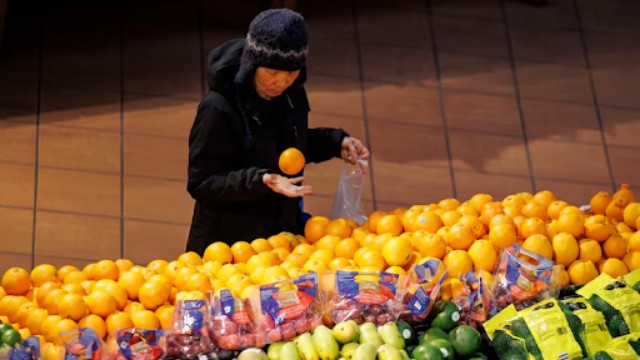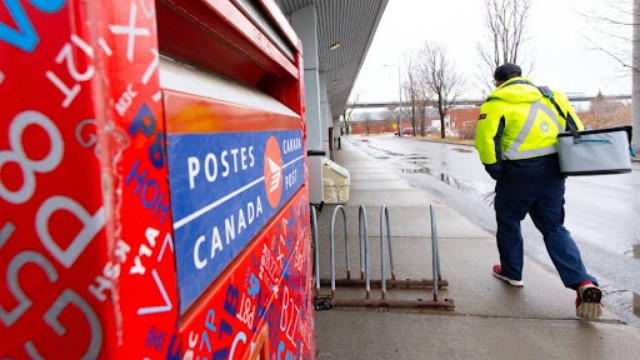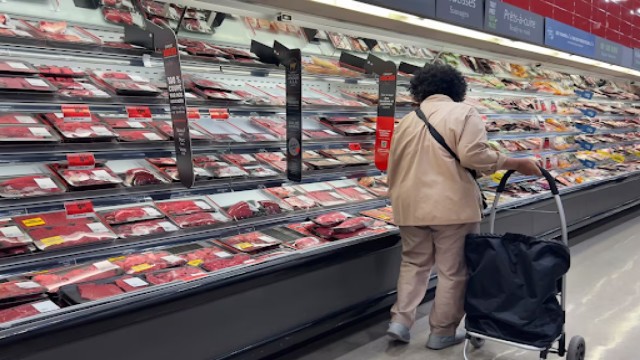
A shopper browses inside a Loblaws store near Toronto on March 6. On Thursday, the company's CEO warned that more grocery items could soon become more expensive, as older stock was brought in before the trade dispute ran out.
Shoppers across Canada and the United States may soon feel a pinch in their wallets. Grocery chains like Loblaw and Walmart are preparing for price hikes on many everyday items, driven largely by recent tariffs introduced on both sides of the border.
In a LinkedIn post, Loblaw CEO Per Bank shared that the number of grocery products hit by tariffs in their stores is set to rise dramatically. Up until now, only about 1,000 items were affected. But within a week or two, that number could jump to over 3,000, and might reach 6,000 in the coming months as pre-tariff inventory is depleted.
While these tariff-hit goods represent a small fraction of Loblaw's 80,000-plus product range, customers can expect noticeable price increases in key categories—especially pantry essentials, health products, and natural food items.
Bank pointed out that the situation is not easing up in Canada, even though trade talks between the U.S. and other countries have shown signs of improvement. He emphasized that Canada will soon face a "wave" of price increases related to tariffs.
Some relief has come from the Canadian government, which made adjustments in April to its $60 billion counter-tariff plan. In an effort to shield local businesses and consumers, the government paused tariffs on many U.S. products used in manufacturing and packaging. This allows, for example, milk imported for use in processed foods to avoid extra charges, although milk sold directly to customers still faces tariffs.
Oxford Economics economist Tony Stillo noted that these changes have effectively lowered Canada’s overall tariff pressure to near zero, reducing the risk of broad price hikes.
Canada has also intentionally placed tariffs on goods that have locally produced alternatives—such as dairy, grains, and poultry—making it easier for shoppers to swap out imported products. However, for those loyal to specific U.S. items like aged Wisconsin cheddar, the price will rise.
University of Guelph food economist Mike von Massow highlighted that even items not directly affected by tariffs could become more expensive due to the general uncertainty caused by the trade dispute. Higher prices in rural areas may also worsen, where food already costs more due to shipping and logistics challenges.
Independent grocer Gordon Dean shared how his Ontario store adapted to the changes. Instead of grapes from the U.S., he now sources them from countries like Peru and Namibia. Customers, he says, are not only accepting the switch but have started expecting more local or alternative options.
South of the border, Walmart is facing similar challenges. Although the retailer sources about two-thirds of its products from within the U.S.—mostly groceries—tariffs are still affecting its pricing. CEO Doug McMillon explained that while Walmart is working hard to keep prices down, the increasing costs are difficult to fully absorb due to tight profit margins.
Walmart is already seeing rising costs on bananas, avocados, roses, and coffee due to tariffs on imports from countries like Colombia and Peru. The company is even pushing its suppliers to use alternative materials, such as fibreglass instead of aluminum, to cut costs.
Several major U.S. brands, including Xbox, Mattel, and Procter & Gamble, have also signalled or announced price increases as a result of these escalating trade costs.















